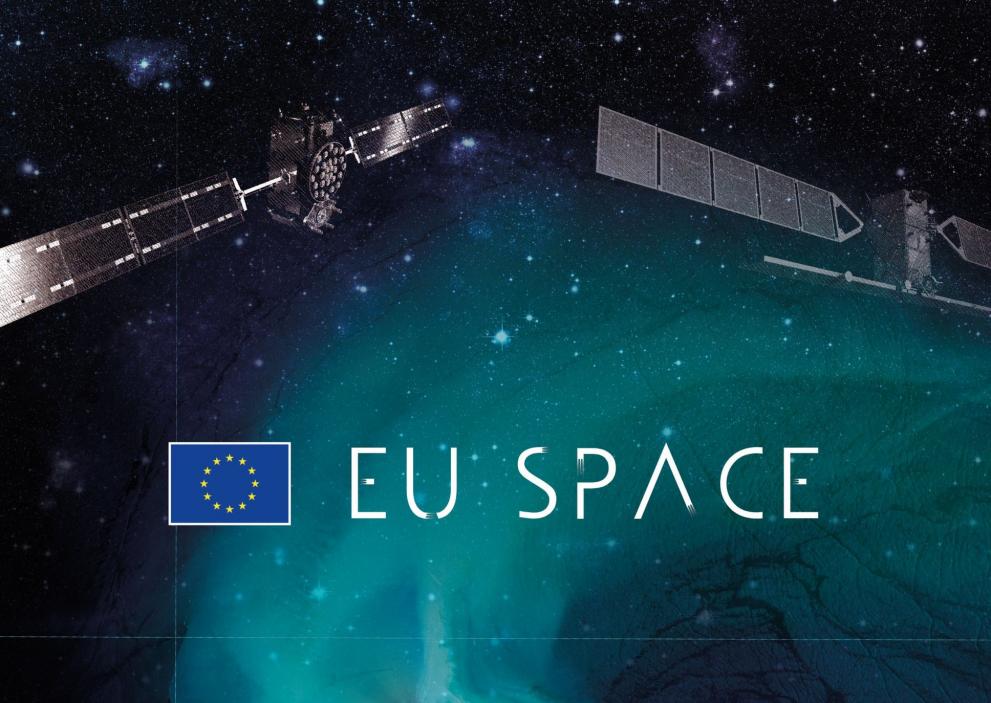
The Commission welcomes the political agreement between the European Parliament and the EU Member States on the European Union Space Programme proposed by the Commission in June 2018. Trilogue negotiations have now concluded with the political agreement, pending the final approval of the legal texts by the European Parliament and the Council. The EU Space Programme will bring all existing and new space activities under the umbrella of a single programme.
Thanks to the financial envelope of €13.202 billion agreed by the co-legislators, the EU Space Programme will ensure the further development of the current European flagship programmes, Copernicus for earth observation and Galileo/EGNOS for satellite navigation. It will also enable the launching of European initiatives in satellite communication (GOVSATCOM) and on Space Situational Awareness (SSA) for the protection of space infrastructure from space debris.
Commissioner for Internal Market, Thierry Breton, said: "I welcome the political agreement on the European Union Space Programme. Europe is the 2nd space power in the world. But the global race is on. With this agreement, we now have the means to develop our leadership in space by consolidating our flagships – Galileo and Copernicus – and exploring new initiatives that will enhance Europe’s resilience, notably in secure connectivity. "
The investment under the EU Space Programme, combined with Horizon Europe and Invest EU, will support the European space industry, in contributing to the competitiveness, innovation, entrepreneurship, skills and capacity-building of primes, small and medium-size enterprises and start-ups and thus enhance the resilience of the EU.
The programme also puts great emphasis on the downstream sector, the market uptake and the exploitation of space data and services including to support the green and the digital transition.
Following this agreement, a vote will take place in the European Parliament and the Council to formally endorse the text. Since the partial agreement in 2019, the Commission has been preparing in order to start ensure its applicability as of in January 2021.
Next steps
On 10 November 2020, a political agreement was reached between the European Parliament, EU Member States in the Council as well as the Commission on the next long-term EU budget and NextGenerationEU. As a next step, the legal adoption of the MFF package along with the ratification of the Own Resources Decision is now urgently needed.
Once adopted, the EU’s long-term budget, coupled with the NextGenerationEU initiative, which is a temporary instrument designed to drive the recovery of Europe, will be the largest stimulus package ever financed through the EU budget. A total of €1.8 trillion[1] will help rebuild a post-COVID-19 Europe. It will be a greener, more digital and more resilient Europe.
Background
Space technology, data and services have become indispensable in the daily lives of Europeans and play an essential role in preserving many strategic interests. Major investments by the EU have enabled progress that no Member State could have achieved on its own.
Galileo has entered a new phase, moving from R&D to the exploitation phase and it delivers operational services 24/7 to almost 1,3 billion users. Copernicus data have the potential to make Europe the new centre of gravity in monitoring and forecasting air quality. We are among the first in the world with a capacity to detect air pollution over large cities from space. In particular the latest Sentinel, Sentinel 5P, is extremely innovative in this perspective. SST, the Space Surveillance and Tracking, that already protects 148 European satellites from collision.
On governance, the Regulation’s objectives is to simplify and streamline the existing EU legal framework on space policy and the rules for the governance of the EU Space Programme. The Regulation gives to the Commission an overall responsibility for the implementation of the Programme, including in the field of security, whereas the GSA will evolve into the EUSPA, the European Union Agency for the Space Programme, with an increase of their tasks and responsibilities.
For More Information
Press release on the proposal for a EU Space Programme
2021-2027 long-term EU budget & Next Generation EU
[1] In 2018 prices.
Details
- Publication date
- 16 December 2020
- Author
- Directorate-General for Defence Industry and Space
Contacts
Sonya Gospodinova
- Name
- Sonya Gospodinova
- Phone number
- 32 2 296 69 53
Célia Dejond
- Name
- Célia Dejond
- Phone number
- +32 2 298 81 99
